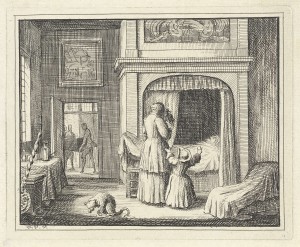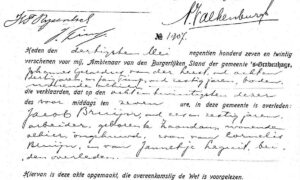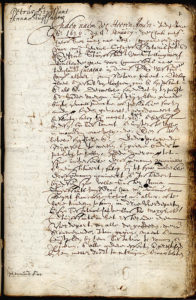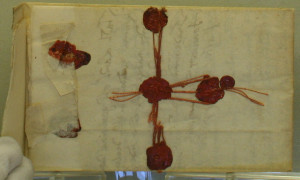Ab intestato means "without a will." The ab intestato heirs of a person are the people who would inherit by law if the person did not have a will. It is a Latin term you may find in Dutch documents regarding someone's estate, for example in a will or estate division. If a person writes a will, sometimes they may refer to the ab intestato heirs to indicate what (if anything) was left to them. It is just a shorthand for saying "to the people who would have inherited had I not made a will." If … [Read more...]
Ask Yvette – How to find a Dutch will
One of our Twitter followers, Karen de Bruyne, asked on Twitter how to find the will of her great-grandfather-in-law Jacob Bruijn, who died in The Hague on 28 May 1927. Since there are several ways to go about it, I thought I would write a blog post about it. Most people in the Netherlands did not have wills, either because there was not much to inherit, or because they were happy with the default way their estate would be inherited. Since 1811, wills were recorded by notaries. Before … [Read more...]
Quick Tip – Dutch Ancestors Left Few Last Wills
Our Dutch ancestors rarely had a last will drawn up. Most were too poor to have any goods to leave behind. But even people who did own property often did not feel the need to have a last will, since they were happy with the default arrangement under the law. The wills that do exist can be found in notarial records (in areas and periods where notaries were available) or voluntary court records. … [Read more...]
Dutch term: testament
A testament is a last will. Most people did not have a last will and died intestate. Usually, only wealthier people had a will drawn up. Wills can be found in notarial records or in court records (before 1811 in areas that did not have notaries). … [Read more...]





